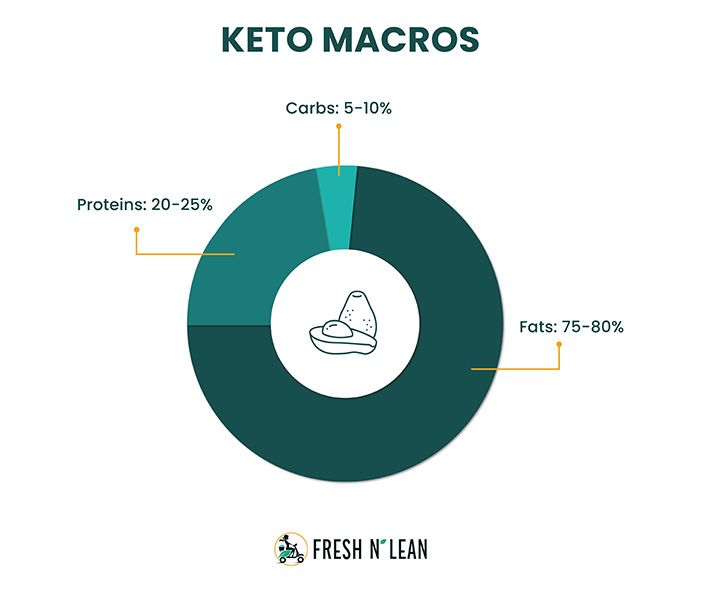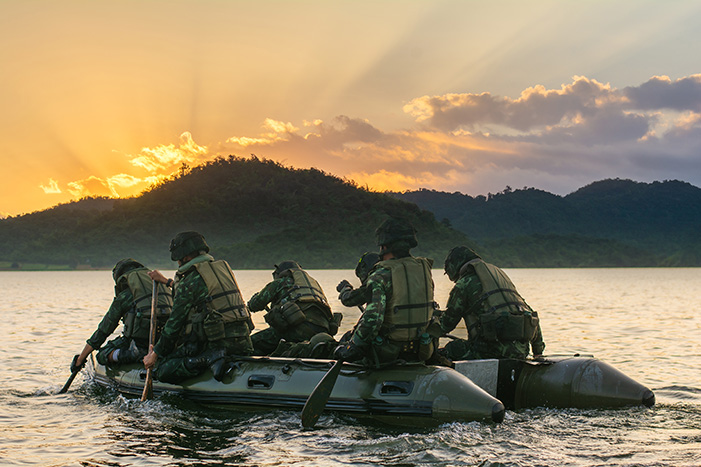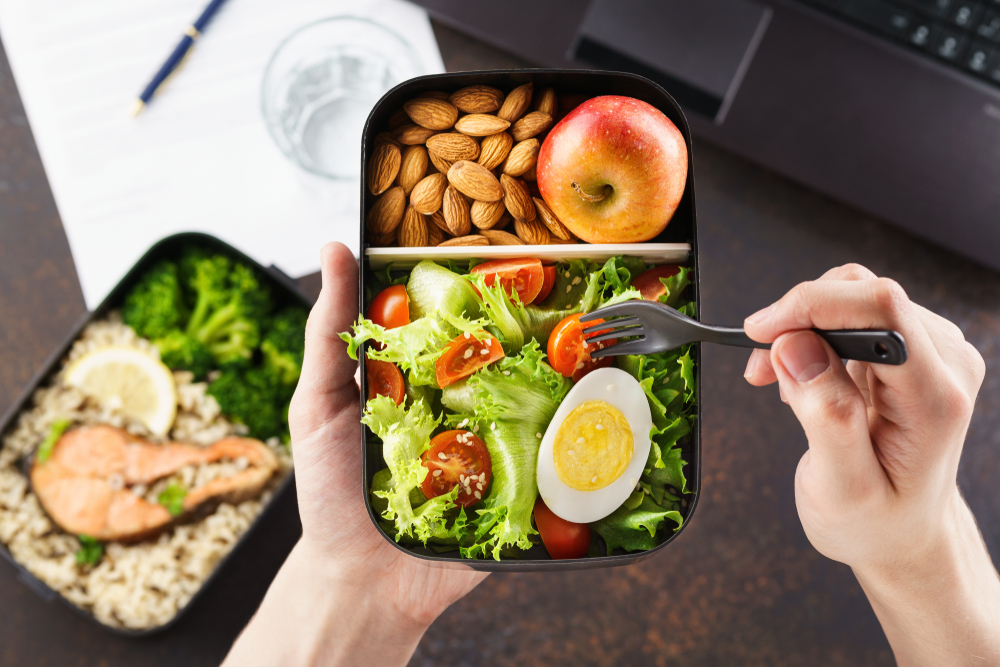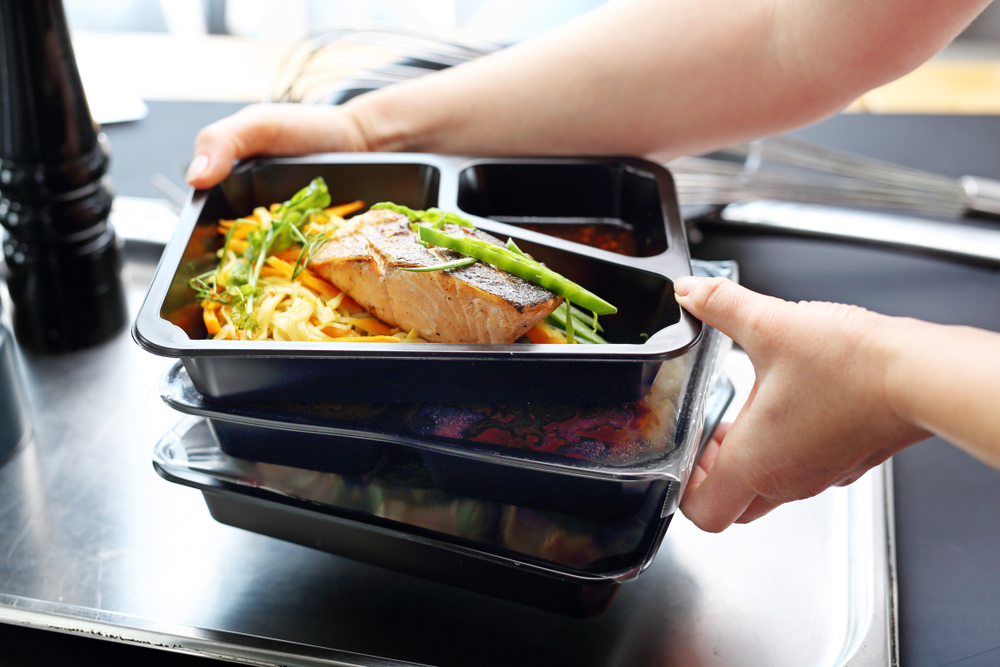SUMMARY
The keto diet is a popular choice with those seeking to lose weight. Surprisingly, it offers unique benefits for Navy Seals.
By now, you’ve likely heard of the ketogenic diet —where you slash your carbohydrate intake and increase your fats to make up the bulk of your daily calories.
Carbs are kept incredibly low, down to around 20-25 net grams a day, while fats make up about 75-80% of your diet. Protein is somewhere in the middle, at a moderate dose—and any protein that contains fat, like a piece of steak or an avocado, is even better, as you’re getting in those extra fat macronutrients, too.

“A simple way to think about a ketogenic meal is a regular portion of healthy protein (like palm size piece of range fed meat), plenty of non starchy veggies (1-2 cups or more of my favorite broccoli or cauliflower) and several servings of healthy fats,” says performance nutritionist Randall Evans, MS, RDN, LD.
“For me that would be meat cooked in coconut oil, olive oil or lots of grass fed butter on the veggies,” he says. And you can calculate carbs by subtracting grams of fiber from total grams to find the net grams. “The threshold for ketosis comes when fat is balanced with protein and net carbs, so a 1:1 ratio. For those wanting to dive deeper into the ketogenic diet they will often go to higher ratios, 2:1, 3:1, or 4:1 which is adding more and more fat while continuing to eat normal amounts of protein and mostly non starchy veggies,” he adds.
And although bloggers have been posting fat bomb truffles and makeover recipes of comforting dishes, like cauliflower pizza or fried chicken, for a while now, it’s not just people looking to lose weight or experiment with a new style of eating that should be browsing those social feeds.
It turns out, the keto diet might be an encouraged lifestyle choice for Navy Seals in order to lower the risk of seizures when underwater.
Plus, when you consider the original purpose behind the keto diet, it makes sense, as “it was designed to help reduce seizures in children and adults who weren’t responding well to medications to treat the condition,” says Ginger Hultin, MS, RD, Spokesperson for the Academy of Nutrition and Dietetics and keto expert. “And there is evidence that a ketogenic diet could be useful in treating seizures—or as part of a treatment plan,” she adds. If you’re using the keto diet forseizures or cancer, it’s often with a 4:1 keto ratio, says Evans.
Still, let’s dig deeper. Does that mean Navy Seals should all go keto? And is there enough evidence to back up the correlation? Here’s what the experts have to say.
Why are Navy Seals Prone to Seizures?
“Navy Seals are at risk for oxygen toxicity seizures due to the length of the missions. They often use rebreathers to enable them to move quickly and undetected,” says Evans.
The diver exhales gases, which are then re-circulated back to them to be used again. “Within the circuit, carbon dioxide is removed and oxygen is added back into the circuit. The advantages of a rebreather are that there are no bubbles produced and there is a greater efficiency in oxygen use for the diver,” says Carl Knopke, M.D., FOMA, FAAFP.
The problem though is that time is limited before you can stop using them and risk an oxygen issue and seizure. “With Navy seals who might have people shooting at them or no choice but to extend their time on the rebreathers they found some of them were likely having issues knowingly or not,” Evans says.
That’s why research is being done to see whether keto or supplementation can help reduce the likelihood of seizures. “There are also ketone supplements called ketone salts and ketone esters, [and] these supplements are being used along with MCT oils in research to see if using them will allow the Navy seals to eat a more moderate version of the ketogenic diet along with the supplements and still get the same seizure protective benefits,” Evans says.
The Pros?
For weight loss and hormonal balance, sure! “The body is forced into a different metabolic state where ketones are produced from fat stores and used as a source of energy. This often is accompanied by very low levels of insulin and often comes with weight loss through a reduced need for caloric intake and a higher rate of body fat utilization for energy use,” explains Knopke. You also might notice lower hunger levels and more mental clarity, which could be beneficial for a diver on a mission.
And if you’re eating healthy sources of fats, like meat, avocado, nuts and seeds, and grass-fed beef and dairy, rather than fried foods and bacon, then you’re going to give your body the nutrients it needs and you’ll burn ketones efficiently to target fat.
What’s more, “some of the known genetic expression benefits are related to down regulation of inflammation in the brain. For a brain nearing a seizure ketones also have a thermogenic advantage, meaning the cells do not have to make energy to use ketones for fuel, this is thought to be a primary benefit as the brain requires a good portion of our energy intake each day,” says Evans.
The Cons?
There’s not enough solid research to support the benefits in relation to seizures, and the keto diet is extremely rigid and restrictive. “The ketogenic diet can be challenging for any of us so being on secret missions and even training likely makes adhering to a special or specific diet more difficult,” says Evans.
Many of the studies on this topic involve rat studies, where they draw blood to measure the levels of certain ketogenic biproducts within the body and rely on the results showing a lack of seizure. “What makes this difficult is that you can’t take10 divers, turn up the partial pressure of oxygen on a dive enough to make them have a seizure and then repeat the experiment on a ketogenic diet to see if fewer divers have a seizure,” says Knopke. And without that research, it’s impossible to make a conclusion.
The Takeaway
The Navy Seals should probably wait a bit, unless they want to go on the ketogenic diet for other health reasons or have been advised by a doctor. The evidence for seizure reduction isn’t quite there yet.
“I’d suggest using caution before turning to a ketogenic diet as a first choice. First off, I’d like to see the evidence that a ketogenic diet works for this type of seizure. Secondly, a ketogenic diet is quite restrictive and requires medical supervision,” says Hultin. A Navy Seal on this diet would need a lot of support and oversight, which is another thing to consider, she adds.
As far as seizures go, anyone at risk of or with seizures should be working closely with their medical team to better understand if a ketogenic diet could help. “If they are going to start it, they should be getting regular lab testing and working closely with a registered dietitian to ensure they’re doing it correctly, meeting their nutrient needs and avoiding common side effects of the diet,” Hultin says.
Or they could meet somewhere in the middle. “For the Navy Seals I would target a healthy whole foods meal plan emphasizing healthy fats to put them near ketosis then use the MCT oils to supplement the diet,” says Evans. This kind of format is more realistic, and they’ll still reap the protective effects from higher ketone levels.
Fresh N Lean is the nation’s largest organic meal delivery service. Our tasty, chef-prepared cuisine is always fresh and never frozen, and we offer convenient meal plans like Protein+, Keto, Paleo, Standard Vegan and Mediterranean. Choose Fresh N Lean for affordable nutrition, delivered to your doorstep.



